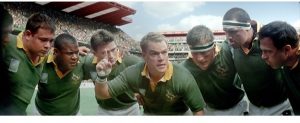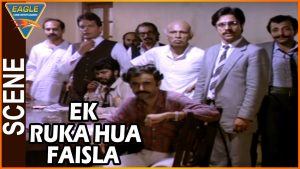For a class of leadership management, last semester for semester four students of MBA program I decided to show the movie Invictus, we watched the movie one afternoon. The movie captivated the class; the students got very inspired with the way Mandela communicates with the people of South Africa. He uses the sport of Rugby to engage both blacks and whites as both were torn by racial bias. The movie centers on Nelson Mandela’s leadership quality; he uses a sport to bridge the gap between blacks and whites. After the movie, we discussed in the class room how managers can avoid disconnection of employees by conducting simple interactive activities such as games, entertainment programs, small get-togethers, movie screening, some outings etc help in bridging the gap in communication. It helps reduce misunderstandings among team members. Many times, we undervalue the power of engaging employees. This causes a big problem when it comes to employee-retention. Invictus is ba sed on the life of one of the most iconic personalities in world — Nelson Mandela and in my opinion all budding managers can learn the art of motivation and leadership from this movie.
sed on the life of one of the most iconic personalities in world — Nelson Mandela and in my opinion all budding managers can learn the art of motivation and leadership from this movie.
Films have the power of making an emotional connection with people and teachers at all levels of learning must use this power. Another movie I love to watch with students is ‘Trucker: The man and his dream’. This is a great movie about new product development, big companies, and a man focused on realizing his vision. The details in the film about specific ideas and how committed to those ideas Tucker was can be quite vivid and great lessons.
In the class room we collectively watch a film, which is a shred activity based on collective intention of watching a film. We jointly attend a single objective: the film and its theme. As a gathering of the class of 60 or 100 we are moved genuinely for those few hours. It’s cohesion of the class.
V. Rajendra Singh is a Kannada film maker and producer. He has expressed in many social events starting of film clubs in educational institutions to screen films and involve students in discussions with a view to helping their all-round growth. Film screening as a pedagogy has many benefits: learners can digest conceptual content at their pace and explore content more deeply during class time, movies enhance transferable skills in students, which include research skills, collaborative working, problem solving, technology, and organizational skills.
IIM, Calcutta has designed a course called ‘Management Through Films’ which aims at exposing students to a variety of social, economic and ethical themes through a select set of films to sensitize them to think more about these issues. The faculties feel this will contribute to the making of a good manager and better citizen. Students are encouraged to raise critical questions about individual choices, social and economic arrangements and corporate cultures and values.
I also like the Hindi movie ‘Ek Ruka Hua Faisala’ which is a gripping story that begins in a courtroom where a teenage boy from a city slum is on trial for stabbing his father to death. Final closing arguments have been presented, which carries a mandatory death sentence. The judge before giving final judgment instructs 12 jurors to decide whether the boy is guilty of murder or not. When all get inside the discussion room, it is immediately apparent that all jurors with the sole exception of Juror Number 8 (played by K.K. Raina) have already decided that the boy is guilty; they plan to return their verdict quickly, without taking time for discussion. Jury number eight’s decision of having round of discussion before reaching final conclusion infuriates the other jurors. The entire film centers on the twelve men’s difficulty in reaching a unanimous verdict. While majority of jurors give opinion based on their personal prejudices, Juror 8 maintains that the evidences presented in the case are inferred, and that the boy deserves a fair consideration.
The movie illustrates how bias mars decision making; when we go by our past experience and stereotype our decisions lose precision. Moods and emotions have significant effects on decision making. Positive moods and emotions seem to help decision making. Calm and composed people make better judgments; they have a better ability to plead their point. When people shout and lose their temper, they lose their balance and chance to make a point. After the movie, I make students discuss role and character of each jury and his decision making process besides the plot of the movie.
Many times it is good to even show videos. The interactive features of modern web-based media players can be used to promote ‘active viewing’ approaches with students. This is quite inspiring and engaging activity in the class room. It increases student motivation, enhances learning experience, increases subject development potential for deeper learning of the subject, it also enhances team working and communication skills of students.














































